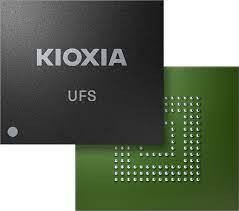Apple could add Chinese memory chip provider to its iPhone supply chain
Apple is reportedly testing flash memory chips from Chinese chipmaker Yangtze
To put this news in perspective, most chips are produced in cleanrooms since even the smallest speck of dirt can ruin a chip. South Korean memory chip suppliers Samsung and SK Hynix are expected to make up for Kioxia’s lost production. Apple is hoping to add to its supply chain to make sure that there are no disruptions when it comes to manufacturing the iPhone.
Memory chips are often the first components made by aspiring chipmakers since they don’t require the complex circuity designs that Application Processors (AP) do which reduces the investment required to get production up and running. When it comes to memory chips, being able to build in large volumes is one of the most important capabilities.
Because of Kioxia’s contaminated facilities, prices for flash chips could rise as much as 10% next quarter
Some sources tell Bloomberg that because memory chips are commoditized, Apple might decide to use Yangtze’s flash memory chips on some of its lower-end devices such as the recently released iPhone SE. Jeff Pu, an analyst with Haitong International Securities estimates that “Yangtze memory will supply about 5% of memory for iPhone SE, and 3% to 5% of memory for the upcoming iPhone 14. Apple is using its product because it offers competitive pricing.”
In addition, the iPhone is manufactured in China by Taiwanese contract assembly firms Foxconn and Pegatron. Having a NAND flash memory chip supplier in the country could provide the assembly firms with a closer source of memory chips. Still, it might take years for Apple to reach a conclusion on the quality and yield of Yangtze’s flash memory. It took Apple years before deciding to make China’s BOE one of its major suppliers of OLED panels for flagship iPhone models.
Because of the contamination of Kioxia’s facilities, prices of flash memory chips are expected to rise 5% to 10% during the June quarter. Earlier this month Kioxia resumed production of its flash memory chips. The contamination rendered a whopping 7 exabytes of 3D NAND unusable representing approximately 3.38% of the total annual of NAND production for last year.
For all the latest Technology News Click Here
For the latest news and updates, follow us on Google News.

